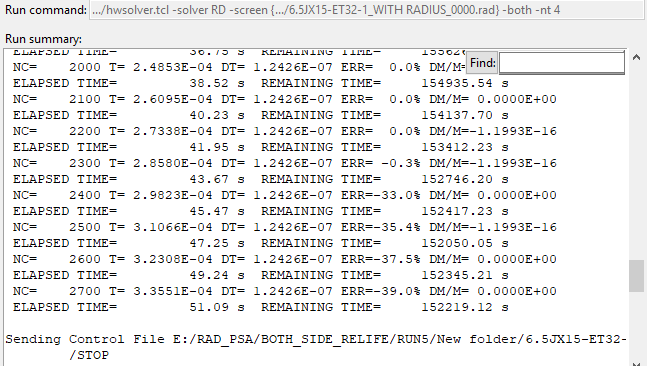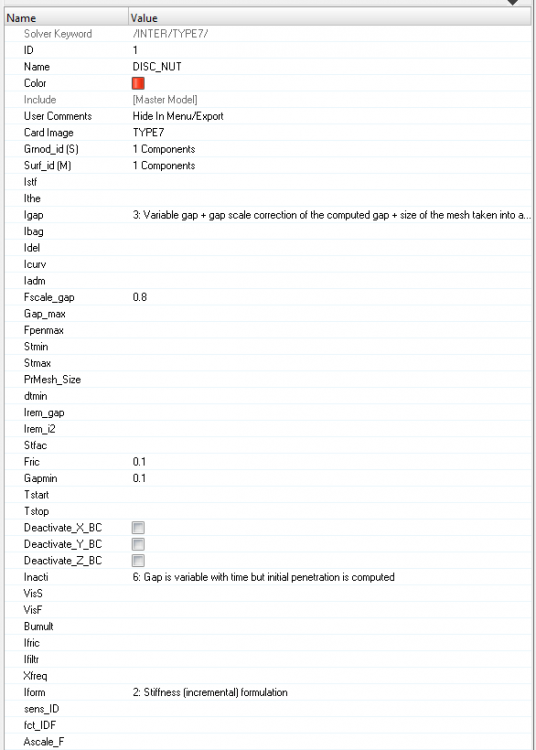Hello everyone,
i am facing negative % ERROR in radioss, due to % error convergence issue is occurring.
for reference i am attaching the .out file.
pls let me know how can i resolve the issue.
One thing i want add is this % error is occurring when ever i am using contact between master and slave component,
i am sure there is no any penetration between slave and master.if i am simulating the problem without any contact , like directly applying load on component node,
there is no issue occurring.for reference i am also attaching the snap shoot of contact assignment.
 <?xml version="1.0" encoding="UTF-8"?>
<?xml version="1.0" encoding="UTF-8"?>
regards
Unable to find an attachment - read this blog